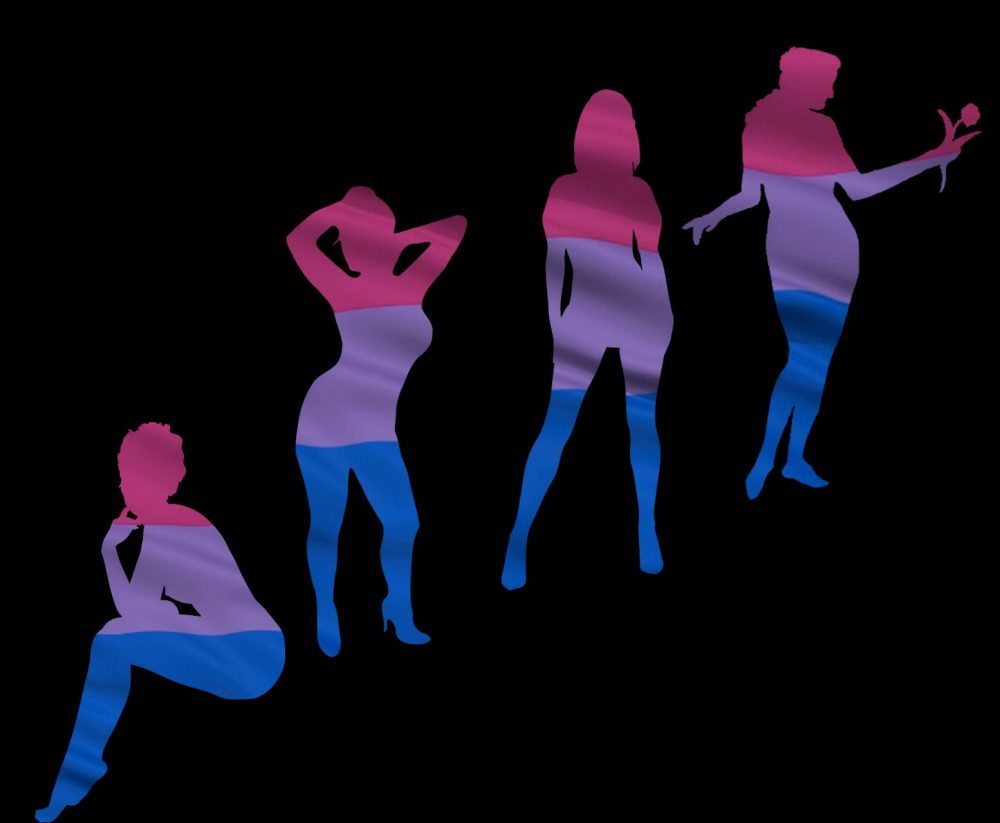In my sophomore year of college, I was hooking up with a guy regularly.
I remember two distinct things about it. One, he always wanted to watch Will & Grace. Two, he always asked me if I would have a threesome with him. In fear of sounding too much like Robert Downey Jr defending Chris Pratt, he really was a nice guy. At this point in my life, I had not come out as Bi.
I made sure to look as straight as possible. I kept my hair long despite hating the feeling of it on my neck. I wore dresses and skirts for fear of being pegged as “too masculine”. I never dressed how I felt. I dressed how I wanted to be perceived. My friend, who isn’t actually a bad guy, kept asking for a threesome nonetheless.
Perhaps, he recognized that sexuality was a spectrum. Or perhaps, he just wanted a threesome. I vote for the latter. In the months after, I came out as Bi to the joy of most of my friends and a noncommittal shrug from the rest. After becoming a part of the LGBTQ+
community, I finally felt free to dress any way I wanted. As I put it once to my friend, “I’m f**king around with gender”. I would dress traditionally masculine for weeks; wore no make-up, tied my hair back. On another given day, I would dress more traditionally feminine; dress and all.
And a lot of other times, I simply mixed it up. It was a weird combination that either showed I had a bad sense of fashion, or I felt a kinship to all genders. When I came back to the city, I checked in with my threesome friend. I asked if he wanted to hang out again. He said he thought I was gay now. I said I was Bi, and then I never heard from him again. I was bewildered to which my friend said “He wanted to have a threesome with a ‘straight girl’ not a ‘gay person’. I was confused. I was Bi; I liked all genders. To which my friend pointed out that I “look more gay than straight”.
Being Bi in the LGBTQ+ community is unnecessarily complicated. Anyone under the pansexual umbrella, are the only members of the acronym that can potential be with someone outside the community. This includes Trans and Nonbinary Pansexual folks. When you bring a cis straight person to an LGBTQ+ space, it feels like you are introducing your high school friends to your college friends. When your significant other brings you to straight environments, it feels like you must perform your gender role in order to fit in. Despite the more inclusive Bi environment now in the LGBTQ+ community, Bi people can feel torn. Not torn by their sexuality, but torn between representation. Who am I in the gay community? Who am I in the straight community? And why the hell can I not just wear what I want?
This problem happened long before my incident with the “really he’s a nice guy” guy. Sexuality, despite being separate from gender, has always been tied with one’s own outward representation. He’s wearing a dress, he’s gay. She’s wearing a collared shirt, she’s a lesbian. She has short hair but is wearing a dress. Well, that’s half of each gender. She must be Bi. It’s this western idea that gender or sexuality is signified by outward acting and dressing. Many people do signal their gender through outward appearance, but that’s not a rule, and sexuality is not
gender.
This specifically has an impact on pansexual people because hotness in the straightcommunity is defined by looking straight. It feels like in order to be “hot” in a the straight
community you must conform to the gender society deems you have. Yet, it also happens in the gay community that bisexual people can be perceived as “not gay enough”. It’s a Catch 22 that has nothing to do with your sexuality and a lot to do with how you wear your hair, or whether you think you look good in make-up .
Truthfully, I currently don’t have the solution to this uncomfortable paradox. When I am flirting with someone of a different gender, I feel the need to toss my hair and put my hand on my hip. When I am flirting with someone of the same gender, I put my hands in pockets and drop
my voice an octave. Bisexual and Pansexual people are just as valid as any identity in the LGBTQ+ community, but sometimes it feels like an effort to make it happen. I don’t have any answers. All I can say is, wear whatever the hell you want and if someone doesn’t want to date you because you seem too “gay” or “straight”, simply just watch Will & Grace on your own.
